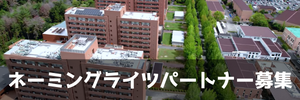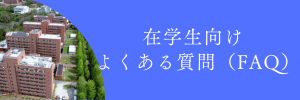(English announcement can be found in the latter half of this notice.)
広島大学バイオマスプロジェクト研究センターと中国地域バイオマス利用研究会の共催で広島大学バイオマスイブニングセミナーを開催しています。バイオマスに関する基本的な考え方から最先端の情報までをカバーして、この地域におけるバイオマスの活動に資することを目的とするものです。第54回を以下の日程で開催しますので、ご参集下さい。
日時 2017年6月8日(木)16:20~17:50
会場 広島大学東広島キャンパス工学部110講義室
http://hiroshima-u.jp/eng/access/lectureroom
http://hiroshima-u.jp/eng/access/building
http://hiroshima-u.jp/access/
プログラム
解説 広島大学大学院工学研究科 教授 松村 幸彦
講演 広島大学大学院先端物質科学研究科 研究員 喜多 晃久
「微生物共生システムによる難分解バイオマスの嫌気的分解機構の解明と物質生産への応用」
コンブの主成分であるアルギン酸や、カニやエビの殻の主成分であるキチンは地球上に豊富に存在する有望な再生可能資源です。しかし、これらは難分解性であり、工業的に利用されている微生物では分解することができません。そのような中で、我々は環境中の菌叢が、いとも簡単に難分解バイオマスを嫌気分解し得ることを見出してきました。今回は、これまでに明らかとなった、その分解メカニズムや物質生産への応用について紹介します。
講演 広島大学大学院工学研究科 M1 橋本 壮侍
「亜臨界水および超臨界水中におけるDNAの分解挙動」
リンは植物を育てる際の肥料でありますが,その形態は無機リンです。近年,下水汚泥から無機リンを回収する研究が行われており,水熱処理はその方法の一つとして提案されています。本研究では下水汚泥に含まれているとされる有機リンの一つであるDNAを試料として用い,その挙動を確認しました。300℃から450℃までで温度を変化させて実験を行ったところ,超臨界状態において反応温度もしくは滞留時間の上昇とともに,全リンおよび無機リンの収率は減少しました。
講演 広島大学大学院工学研究科 D3 Pattasuda DUANGKAEW
「水熱反応生成物のその場の質量分析」
近年、石油価格の高騰と化石燃料の使用などによる地球温暖化により、再生可能エネルギーに注目が集まっています。そこで私の研究の目的は、特に、バイオマス資源を燃料や化学薬品へ変換する技術が必要不可欠です。大型藻類の水熱前処理の主な生成物を決定します。140 ~220 ℃の水熱前処理においてグルコースがどのように反応するかを調べました。直接質量分析の結果と高速溶液クロマトグラフィーの結果を比較しました。
司会 広島大学大学院工学研究科 客員研究員 Obie FAROBIE
なお、18:00より意見交換会(参加費 800円)を開催します。ご都合の付く方はこちらにもご参加下さい。
The 54th Hiroshima University Biomass Evening Seminar
(The 15th Hiroshima University ACE Seminar)
Biomass Project Research Center, Hiroshima University, and HOSTY Association are co-organizing the Hiroshima University Biomass Evening Seminar. This seminar covers topics from the fundamentals of biomass to the latest information so that it can contribute the activities on biomass in this district. The 54th seminar will be held as follows. Please join.
Date & Time:Thu .8 Jun., 2017 16:20-17:50
Place: Engineering 110 Lecture Room, Higashi-Hiroshima Campus, Hiroshima University
http://hiroshima-u.jp/eng/access/lectureroom
http://hiroshima-u.jp/eng/access/building
http://hiroshima-u.jp/access/
Program
Commentary: Yukihiko MATSUMURA
Professor, Institute of Engineering, Hiroshima University
Lecture: Akihisa KITA
Reseacher , Graduate School of Advanced Sciences of Matter, Hiroshima University
“Elucidation of anaerobic degradation mechanism of hardly degradable biomasses by microbial symbiosis and its application to production of useful materials”
Alginate and chitin are promising renewable resources because they are abundant on the Earth. However, alginate and chitin can not be utilized by industrially utilized microorganisms such as Esherichia coli, Yeast and so on. Recently, we have found that the microbial consortia in the environment can easily utilize hardly degradable biomass.
In this seminar, we will introduce the degradation mechanism of alginate by bacterial symbiosis and its application to useful materials.
Lecture: Soshi Hashimoto
M1 Student, Graduate School of Engineering, Hiroshima University
“Decomposition behavior of DNA in subcritical and supercritical water”
Phosphorus is used for fertilizer to grow plants and its form is inorganic phosphorus. Recently, phosphorus recovery from sewage sludge have been researched and hydrothermal treatment is proposed as one of the method. DNA is one of the organic phosphorus contained in sewage sludge and we determined the behavior in this study. At this time, the experiment was conducted by changing the temperature from 300 ℃ to 450 ℃. Total phosphorus yield and Inorganic phosphorus yield decreased with the increase of reaction temperature or residence time under supercritical condition.
Lecture: Pattasuda DUANGKAEW
D3 Student, Graduate School of Engineering, Hiroshima University
“In situ Mass spectrometry of hydrothermal reaction products ”
Recently, with rising prices for petroleum and concern for global warming due to the use of fossil fuels the development of renewable fuel source continues to attract a lot of attention. The technology for conversion of biomass resources into fuels and chemicals are necessary. To determination and manipulation of the primary product during the hydrothermal process of macroalgae. Therefore, the aims of this research to develop and design the rapid analysis of sugar production under hydrothermal pretreatment conditions via in situ mass spectroscopic method. The products of glucose during hydrothermal; pretreatment under various temperatures (140-220 ℃) have been investigated. Moreover, the results from in situ analysis, and commercial HPLC were compared.
Chair: Obie FAROBIE
Visiting Reseacher, Institute of Engineering, Hiroshima University
We will hold the discussion meeting from 18:00 (800 JPY needed). Join this meeting, too if you are available.


 Home
Home




